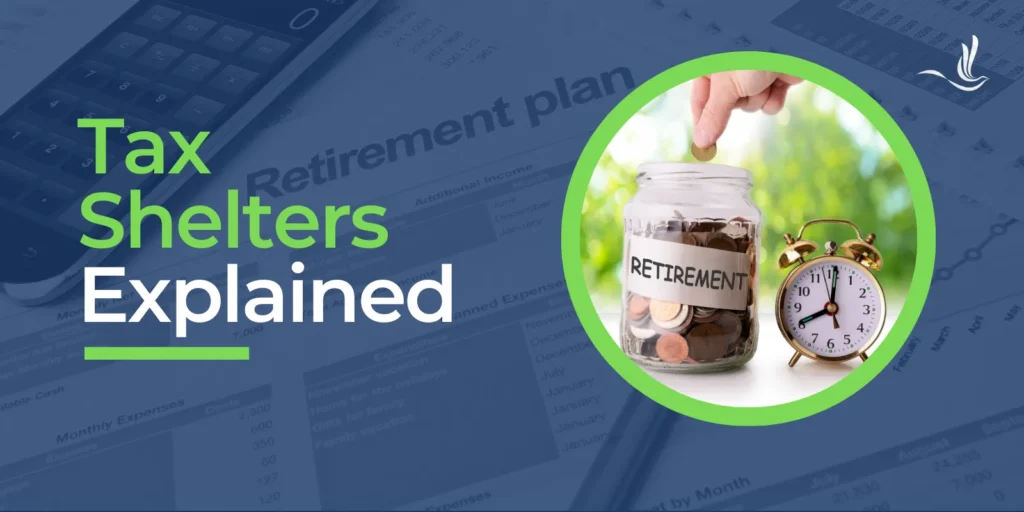Tax shelters have long been a topic of interest and controversy in the world of finance and taxation. They can serve as valuable tools for individuals and corporations seeking to minimize their tax liabilities. However, the use of tax shelters often raises ethical and legal questions. This article dives into what tax shelters are, how they work, their types, and the implications of their use.
What Are Tax Shelters?
A tax shelter is a financial strategy or investment that individuals and businesses use to reduce their taxable income and, consequently, their tax liability. By using tax shelters, taxpayers can defer, reduce, or even eliminate the amount of taxes owed. While some tax shelters are legal and encouraged by governments to promote certain economic activities, others can be illegal or considered aggressive tax avoidance.
How Do Tax Shelters Work?
Tax shelters work by leveraging various provisions in tax laws to minimize taxable income. These provisions can include deductions, credits, exemptions, or favorable tax treatment for certain types of income. There are some common mechanisms through which tax shelters work.
- Deductions: Taxpayers can reduce their taxable income by claiming deductions for specific expenses, such as mortgage interest, medical expenses, or charitable contributions.
- Tax-Deferred Investments: Certain investments, like retirement accounts, allow taxpayers to defer taxes on income earned within the account until funds are withdrawn.
- Tax Credits: Taxpayers can reduce their tax liability dollar-for-dollar by claiming credits for specific activities or expenses, such as education costs or energy-efficient home improvements.
- Income Shifting: Transferring income to lower-tax jurisdictions or to family members in lower tax brackets can reduce overall tax liability.
- Depreciation: Businesses can deduct the cost of tangible assets over time, reducing taxable income in the years the assets are depreciated.
Types of Tax Shelters
Tax shelters can be broadly categorized into legal (or legitimate) and illegal (or abusive) shelters.
Legal Shelters
Legal tax shelters are strategies or investments designed to reduce taxable income and tax liability within the boundaries of the law. Retirement accounts are perhaps the most common legal tax shelters. Contributions to 401(k) plans, IRAs, and other retirement accounts are often tax-deferred, meaning taxes are paid upon withdrawal rather than when the income is earned. Municipal bonds are another form of legal tax shelter. Interest earned on these bonds is typically exempt from federal income taxes, and sometimes state and local taxes as well. Real estate investors can take advantage of depreciation deductions and other tax benefits associated with owning property. Education savings accounts, like 529 plans and Coverdell Education Savings Accounts (ESAs) offer tax-free growth on contributions. Health Savings Accounts (HSAs) are another kind of legal tax shelter. Contributions to HSAs are tax-deductible, and withdrawals used for qualified medical expenses are tax-free.
There are also several types of legal tax shelters for businesses. For example, legitimate business expenses, such as salaries, rent, utilities, and supplies, are deductible from business income, reducing taxable income. There are also several tax credits businesses can take advantage of to help lower their tax liability, including research and development credits and energy efficiency credits. Businesses can use income shifting strategies, such as gifting income-producing assets to family members in lower tax brackets, to reduce overall tax liability. Establishing trusts can also help manage and reduce tax liabilities by distributing income in tax-efficient ways.
Illegal Shelters
Illegal tax shelters are schemes designed to evade taxes by exploiting loopholes or engaging in deceptive practices that violate tax laws. For example, offshore accounts hide income in foreign banks to avoid reporting to the IRS. Another example is establishing shell companies in tax havens to obscure the true ownership of assets and income. Some may create sham transactions to generate bogus losses to offset taxable income or inflate tax deductions.
Another illegal tax shelter is the misuse of tax-exempt entities. One example is abusing the tax-exempt status of non-profit organizations by funneling personal or business expenses through the organization. Other examples include using private foundations to retain control over assets while claiming deductions for contributions that do not serve a charitable purpose. There are several ways a business can get into trouble with illegal tax shelters. Overpricing and underpricing profits to shift profits is an example. The practice of captive insurance fraud has been seen and claiming deductions for insurance coverage that does not exist or is not necessary for the business.
Implications
The use of tax shelters carries significant implications for both taxpayers and governments. For taxpayers, effective use of tax shelters can lead to substantial tax savings, freeing up resources for investment or personal use. However, engaging in illegal or aggressive tax shelters can result in penalties, interest, and legal action by tax authorities. Corporations and high-profile individuals using aggressive tax shelters may face reputational damage and public scrutiny.
For governments, widespread use of tax shelters can erode the tax base, leading to lower tax revenues and potentially affecting public services and infrastructure. Governments often respond by closing loopholes, introducing anti-abuse rules, and enhancing enforcement efforts to combat tax avoidance and evasion.
Tax Help for Those Who Use Tax Shelters
Tax shelters are powerful tools for managing tax liabilities, but their use requires careful consideration of legal and ethical boundaries. While legal tax shelters can provide legitimate tax benefits, aggressive or illegal schemes can lead to serious consequences. Taxpayers should seek professional advice to navigate the complexities of tax shelters and ensure compliance with tax laws. Understanding the nuances of tax shelters is essential for making informed financial decisions and maintaining a fair and functional tax system. Optima Tax Relief has over a decade of experience helping taxpayers with tough tax situations.
If You Need Tax Help, Contact Us Today for a Free Consultation
Publisher: Source link











